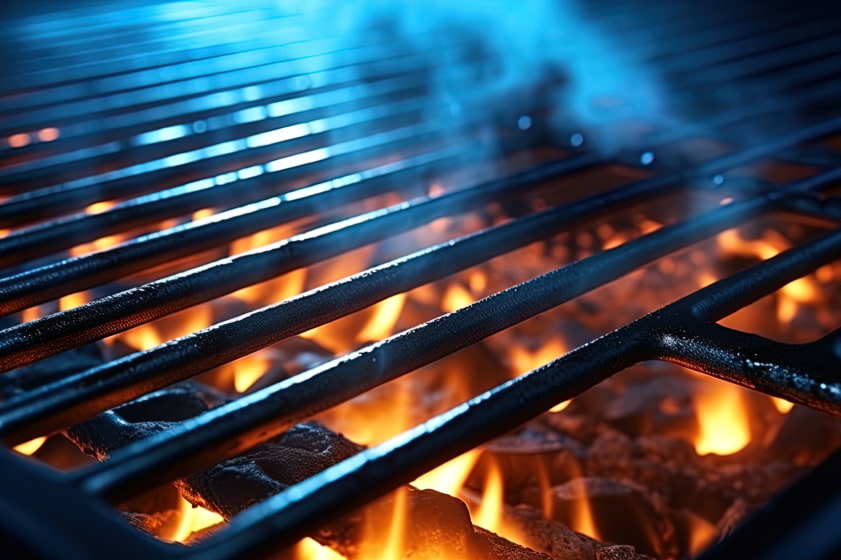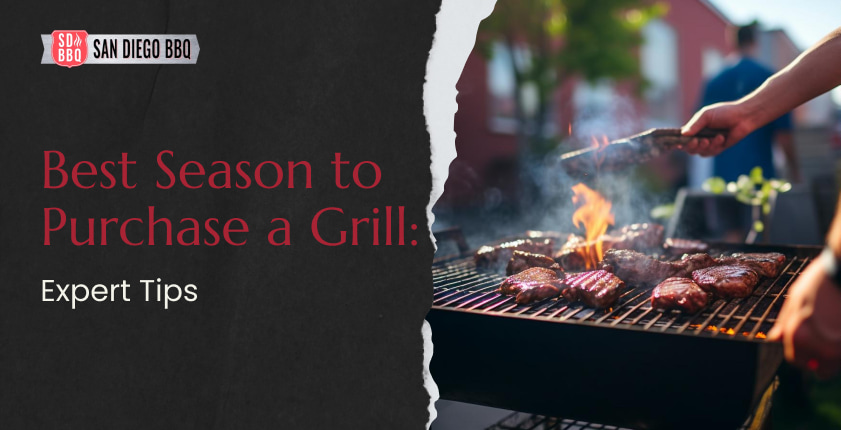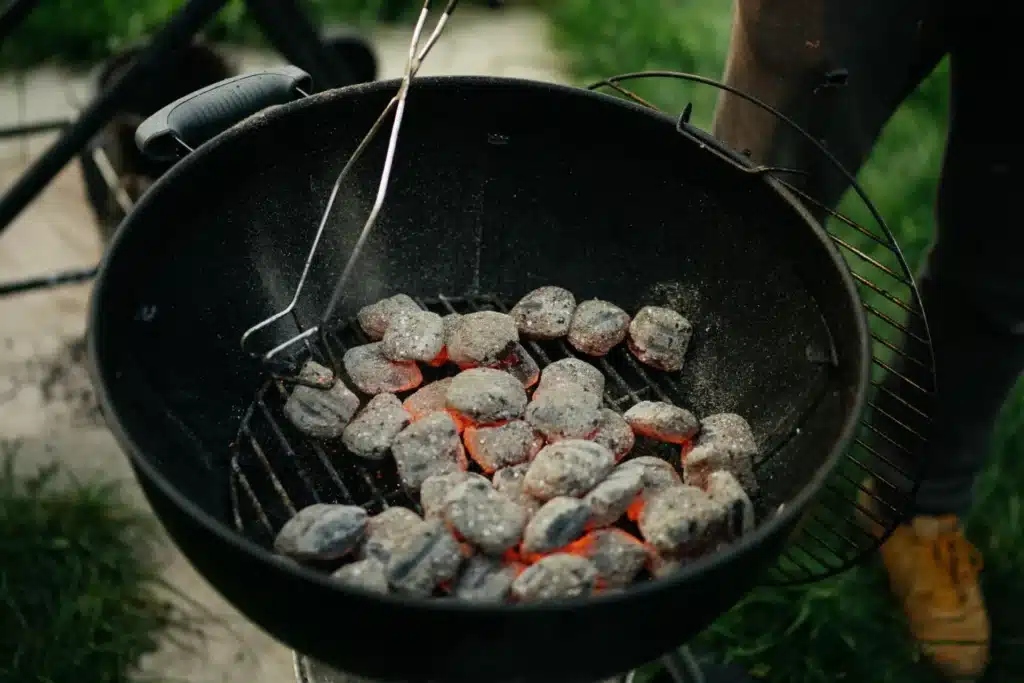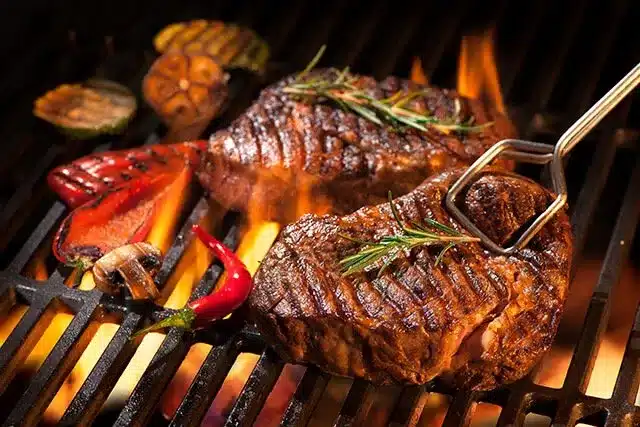What Kind of Metal is Safe for BBQ Repair?
Table of Contents
Toggle
– “Dear, I think it’s time we got a new grill! Ours is completely rusted out.”
– “Honey, taxes are due this month. Can’t we get by without buying a brand-new grill?”
Barbecues are a great time to spend with family and friends. But your grill may break down or start corroding from rust sooner or later. It’s time for a BBQ repair, but what if your grill can’t be repaired?!
That’s not a pleasant situation, is it? Especially with Uncle Sam knocking at your door.
It’s all due to your grill’s metal components, which aren’t repairable, so you have no other option than buying a new grill.
But hold on. What if we could avoid this scenario in the first place? Protect your grill (and wallet) in advance by choosing an easy-to-repair grill.
We offer a breakdown of the most popular grill metal choices, from Bar b que stainless steel to mild steel. So read on to save yourself money in the future.
Stainless Steel: The Preferred Choice for BBQs
Stainless steel is the most preferred choice for your barbecue repair. It is a trendy choice for a reason, and these metal sheets are heat-resistant and can be easily sourced for repairs. There are several reasons why choosing this metal type has become the most popular choice:
- Resistance to corrosion. Rust and corrosion are two of the most unpleasant things you can encounter on your grill. Stainless steel boasts a high Chromium content, which is what creates all the magic. Thanks to the Chromium content, you’ll get a protective layer on your grill. Moreover, this protective layer will perform perfectly even in high heat conditions during grill operation and high humidity conditions.
- Durability. Stainless steel is built to last. Unlike any other material, many people may use grill sheets for BBQ because they realize this is the result for years. And that’s a significant saving in the long run because you won’t have to replace parts constantly.
- Heat Resistance. Grilling is all about working at high temperatures. And, of course, when choosing a metal, it is vital to ensure that it does not become soft and pliable at such a high temperature. Stainless steel will not bend, expand greatly, or shrink when exposed to high temperatures.
- Aesthetics. Let’s face it: a well-maintained grill adds sophistication to your outdoor space. Stainless steel has a smooth and polished finish that complements your aesthetics. So, if you’re a fan of the picture-perfect aesthetic, a stainless steel grill is a masthead for you.
So you’ve decided you want a stainless steel grill, but it’s worth saying that it comes in many different varieties. You can choose one perfect for your grill and your family. We know exactly how to determine the best one for your grill:
- Brand. The brand for your Bar B Que stainless steel makes a difference. Our advice is 304 or 316, which offer superior corrosion resistance.
- Magnetic Test. The magnet test is a simple but effective technique. High-quality stainless steel with a higher chromium content is generally non-magnetic.
Understanding Metal Safety for Cooking Surfaces
When we think about grilling, we first think of juicy steak kabobs and grilled vegetables. Well, we do, at least. But have you ever wondered how safe your grill is? Is it even safe to cook on your grill?
The fact is, not every metal is designed for cooking. And when it comes to safe metal, it’s essential to be knowledgeable about it. You need to realize that a mistake could cause you poisoning or worse! You don’t want to ruin your perfect barbecue, do you? So, find out ahead of time what makes metal safe for grilling:
- Reactivity. It’s common sense, but eating sheet metal is not good, and it should not react with your food at high temperatures. It means that if the metal melts or there is an unpleasant odor when cooking, it is most likely impossible to cook on such metal. Some alloy elements may leach unwanted elements into your food in such cases. Stainless steel, for example, does not react.
- Corrosion Resistance. Metals that corrode quickly can introduce unwanted flavors. It can not only affect the taste of the food but can also lead to harmful side effects in your food. Therefore, choosing an eating sheet metal resistant to corrosion is essential. Tip: you can also consider cast iron, which ensures safe and pleasant cooking.
Particular attention should be paid to aluminum foil, a standard grilling tool. Indeed, you have spooned vegetables, meat, or anything else with it at least once in your life. However, there are safety concerns about some aluminum foils, too.
Is there anything we can actually cook with?
Generally, aluminum foil is safe for indirect heat, such as when wrapping food. But you might be thinking, “Can I line my charcoal grill with aluminum foil?” the answer is a resounding ‘no.’ If you put aluminum foil on your cooking surface, you may be exposed to a more significant release of aluminum particles that can, in turn, penetrate your food.
Heat Resistant Metals Beyond Stainless Steel

We believe that an ideal option is stainless steel when considering metal for barbecues. But different options have pros and cons. We suggest you consider several alternatives to stainless steel:
- High-Temperature Steel Sheets. High-temperature steel, by its name, suggests that we can use it for barbecuing. In its composition, you’ll find nickel and chromium; as we have already said, they have fantastic heat resistance. This type of metal sheet will suit you for repairing, for example, the bottom of your barbecue or walls where the heat level is as high as possible.
- Cast Iron. Cast iron is a formidable option. You can also use its sheets to repair some parts of your grill. Its slight disadvantage is that it is more prone to rust than stainless steel. So, if the price was the issue, you should choose cast iron, but if you want to avoid rusting, we recommend stainless steel.
- Low Carbon Steel Sheet. This safe metal is more affordable than stainless steel. Their plus point is that they have fantastic heat resistance, too. So, if you need wall repair, you can safely use this type of metal. However, it requires regular maintenance to prevent rusting.
- Galvanized Steel. It’s not too expensive an option for repair, but in general, it’s perfect. The only downside to this type of metal is that you can’t use it with food. If you need to replace the grate, do not use galvanized steel. This option is only suitable for the bottom and sides but not for food contact.
Some people use aluminum sheeting to repair areas not in contact with food. However, in general, we do not recommend this. Aluminum contains particles that can seep into your food, which has the potential for dire consequences. Therefore, we recommend considering safer metal alternatives for your grill repair solution.
Navigating Common Metal Myths in BBQ Repair
When repairing your barbecue, choosing the information you read correctly is important. The fact is that many common myths are just misinformation. So, we decided to debunk the most popular myths and tell you whether they are true or not:
| Myth #1: Cooking on Galvanized Steel is Safe | Busted! When wondering whether galvanized steel is food-safe, remember that it’s often used for roofing or gutters and has a zinc coating. Of course, zinc will be good for your body in small amounts. However, it is unacceptable if we talk about the high temperatures and zinc contained in the metal. Galvanized steel is a serious health hazard, so it should not be used for barbecue repair on food-contact surfaces. |
| Myth #2: Aluminum Foil is Perfect for Lining Grills | Aluminum foil is a handy tool for grilling, but if we’re only talking about wrapping food, you can use this type of metal sheet for indirect heating. But if you wrap a cooking grate and the foil is at a high temperature for a long time, it will be fraught for your health. It can leach aluminum particles into your food, making it unsuitable for grill linings. |
| Myth #3: Any Metal Sheet Is Good for Repairs | Not all grill sheets for BBQ are created equal. It’s mainly for repairs involving food safety and heat resistance. Here’s what to consider when selecting grill sheets: Food Safety. The metal shouldn’t readily react with food at high temperatures. Stainless steel (grades 304 or 316) excels in this regard. Heat Resistance. Match the metal’s properties to the repair location. High-temperature steel sheets are ideal for fireboxes. Meanwhile, low-carbon steel sheets can work for cooler areas like shelves. |
Remember! When in doubt, prioritize safety. Choose materials designed explicitly for BBQ repairs. You can not cook on galvanized steel, so avoid using anything that could compromise your food’s safety.

Co-Founder of SDBBQ®
Blake is a true grill guru. Known as a walking encyclopedia of grills, Blake’s deep knowledge and hands-on expertise ensure every grill he touches operates flawlessly, bringing BBQ dreams to life.





